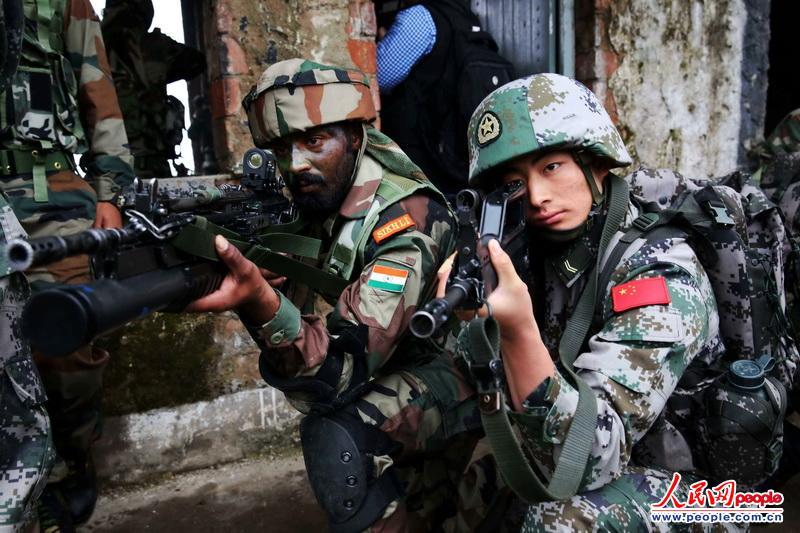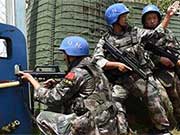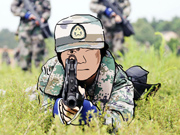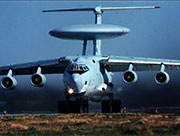

 |
| (File Photo) |
The Indo-China Combined Military Training Exercise "Hand-in-Hand 2015" kicks off Monday in Kunming, Yunnan Province. In order to match Chinese troops' combat skills, officers and soldiers from elite Indian forces are drafted into the exercise.
As always, Western public opinion is paying close attention to Sino-Indian military ties, as well as the impact of the Sino-Indian border disputes on Asian geopolitics.
Given a series of military confrontations between the two nations near the line of actual control, foreign media expressed surprise toward the joint drill, as if the time is not yet mature for Beijing and New Delhi to conduct such an exercise.
In my view, a joint military exercise is a barometer of bilateral relationships. As a new measure of establishing mutual trust, there is no point in making a fuss over the drill. Confrontations in recent years were not created on purpose, but happened by accident. Leaders from both China and India have consensus and enough means to take divergences under control.
Western media tend to view these issues with colored glasses, and therefore often misread the accidental confrontations on the borders.
Before Indian Prime Minister Narendra Modi visited China in May this year, he took an interview with Time magazine. When he was asked what he thought of the cross-border tensions with China, Modi answered, "There is by and large peace and tranquility on the India-China border … Not a single bullet has been fired for over a quarter of a century now," adding that "both countries have shown great maturity in the last couple of decades to ensure and commit to economic cooperation."
However, according to Western commentaries, despite the fact that no gunfire took place near the line of actual control over the past decades, India's defense sector is still vigilant about the Chinese military's rapid modernization. Moreover, the growing presence of Chinese nuclear submarines and conventional submarines in the Indian Ocean is intensifying New Delhi's anxiety.
There is no need to be astonished over the joint drill, for the idea of peaceful coexistence has already been deeply rooted among people from both China and India. "No more fight between China and India," "Beijing and New Delhi are friends rather than rivals," "dragon vs. elephant contention is not inevitable," have become shared understandings between China and India.
George Fernandes, former Indian defense minister, who was considered a political figure that regarded China as an enemy, once said that "the whole media told a lie'' when saying he branded Beijing as "India's enemy No.1."
Fernandes said China is India's friend. In his own words, friendliness accounts for 99.99 percent of the 2,200-year-old Sino-Indian exchanges and misunderstanding merely 0.01 percent, and any problems that lie between the two countries, including border issues, can be solved through peaceful negotiations.
Both China and India have agreed to enhance their military cooperation, and to boost people-to-people exchanges. New Delhi has also suggested bilateral cooperation in anti-terrorism, combating smuggling by sea and anti-piracy operations. Joint military drills will surely promote bilateral collaboration.
China and India, as the two nations with the largest population, are facing the same task of development, and are in urgent need of a peaceful, stable market both inside and outside their countries. A grander mission is that as representatives of emerging economies and members of the BRICS countries, both Beijing and New Delhi should boost their cooperation while improving themselves, in order to jointly create an Asian century, make breakthroughs in the current financial order, and forge a new global economic order that is more in line with emerging markets' interests.
All in all, the upcoming joint military exercise is praiseworthy. Not long ago, Indian Finance Minister Arun Jaitley said in Hong Kong that trade has brought China and India much closer. "We have had some contentious issues of the past between us, but even while those issues would be resolved in due course, I think our economic relations have become a symbol of strength and therefore mutual investments in each other's country will be a win-win situation for both of us," he said.
Day|Week

 China enters Go Away, Mr. Tumor for 88th Oscars
China enters Go Away, Mr. Tumor for 88th Oscars Highlights of the National Day holiday
Highlights of the National Day holiday Chinese peacekeeping forces in South Sudan encounter armed conflicts
Chinese peacekeeping forces in South Sudan encounter armed conflicts "Luxury" art apples debut in Shanghai
"Luxury" art apples debut in Shanghai Photos and hand-painted pictures brighten the military training life
Photos and hand-painted pictures brighten the military training life Models steal the light at Nanjing auto expo
Models steal the light at Nanjing auto expo Magnificent Xian H-6 strategic bomber
Magnificent Xian H-6 strategic bomber Bikini models compete in oriental beauty pageant
Bikini models compete in oriental beauty pageant Archaeologists find 4,000-year-old sentry post in Shaanxi
Archaeologists find 4,000-year-old sentry post in Shaanxi Stunning photos of air show in China’s V-Day parade
Stunning photos of air show in China’s V-Day parade